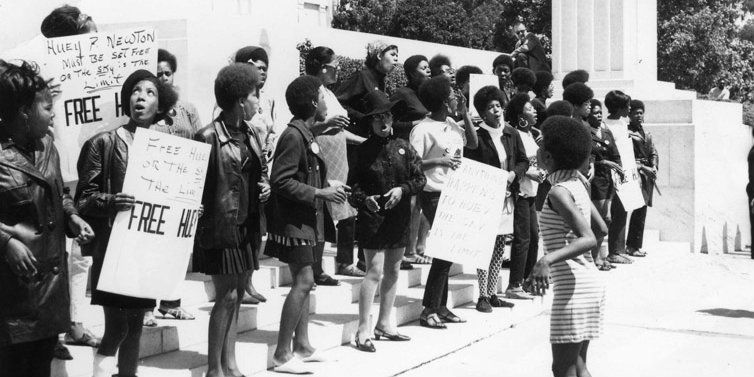Strength in Spirit: The Power of Black Women’s Moral Agency

African-American feminist scholars have often referred to the Black woman’s existence as that which lies in the shadowed margins of North American history. It is an existence that has been fraught with tension to maintain the cultural customs and values of one’s race, and that which has been imposed upon by those of the dominant culture in which they live. Yet, despite this complex terrain which they must operate in and between, Black women have learned how to survive by developing a unique moral agency constructed from their lived experiences as a marginalized class in the West.
As one of the most vulnerable and exploited groups of human beings in civilization, Black women have had to create their own brand of ethical principles and philosophies as methods for sustaining their presence. In a culture where racial and gendered institutionalized structures impede their full progress—their full humanity into society, they have learned to successfully fashion their own set of standards to serve as laws for retaining a sense of integrity and dignity.
Historically, Black women’s moral sovereignty can be traced during the slave era where gendered forms of resistance were enacted to politically undermine the economic stability of the chattel system. By refuting the sexual advances of their owners (or waiting to be married to another slave until they were free), performing self-inflicted abortions (decreasing the number of human bodies born and sold on the plantation) and enacting infanticide (rarely executed and the most psychologically toiling), African American women regained their right to make their own choices, control the use of their own bodies, and if need be, act as god to spare those who had yet to understand the horrific life that lay before them. It was their conscience decision to be treated as more than subhuman that Black slave women began fashioning the enduring practice of moral agency.
In today’s contemporary society, in spite of the many accomplishments achieved by the Black community, African American women are still impacted by the prevailing racist, sexist and classist inequalities of society. Still, none of that has stopped them from pressing ahead using the foundation of their foremothers. Charging onward becoming forerunners in their communities, they provided countless levels of services (education, healthcare, community outreach, etc.) to increase the humanity and quality of life for themselves and of the Black community as a whole.
From Shirley Chisholm who became the first Black woman to run for President of the United States because she refused to assent to the status quo, to Angela Davis, a nationally known Black Panther member who regularly spoke publicly against the atrocities of the government (and was later imprisoned), to Donna Brazile who was the first Black woman to direct a presidential campaign to Melissa Harris-Perry, only one of few African Americans to not only have her own program on a cable outlet, but who uses her political platform to focus primarily on African American politics—these women used their gifts to strengthen not only a nation but the brothers and sisters who depended on them by refusing to compromise their sense of moral agency and justice.
The ethical standards developed by Black women have over the many years shaped a life-sustaining force by which everyone benefits. It is in the power of their moral agency that they continue to rise above obstacles and enact effective change in our society.
Related:
Gone but Not Forgotten: Vivian Malone Jones85 Quotes From Black Women To Inspire You
African-American Heroes: Are We Being Told the Whole Story?
Alice J. Rollins is an aspiring freelance writer and blogger who holds an M.A. in Women’s and Gender Studies from DePaul University. Her areas of interest include African American women’s spirituality, feminist/womanist pedagogy and politics of migration.
She is currently based in Chicago, IL. Email her at: alice@forharriet.com

No comments: